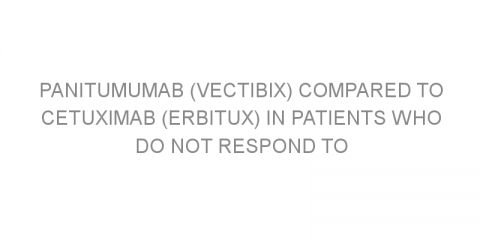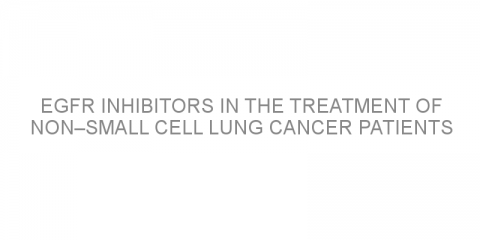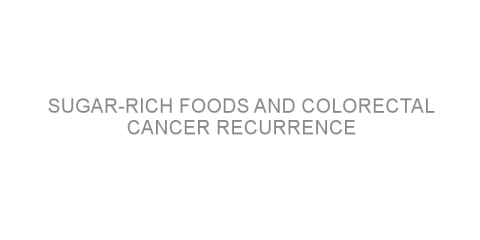In a nutshell This study assessed whether panitumumab is as good as cetuximab for patients with colorectal cancer that is unresponsive to chemotherapy (chemotherapy-refractory colorectal cancer). Some background Colorectal cancer is the fourth-leading cause of cancer related death worldwide. For patients whose cancer has metastasized (spread...
Read MoreTreatment(s) now being considered-Biological therapy Posts on Medivizor
Second-line treatment with panitimumab-FOLFIRI in metastatic colorectal cancer
In a nutshell This study reports the long term data on the use of panitimumab-FOLFIRI in metastatic colorectal cancer. Some background Many agents are now available for the treatment of metastatic colorectal cancer. FOLFIRI is a treatment method consisting of 5-flurouracil (slows or stops cell growth), leucovorin (Fusilev;...
Read MoreSoluble irinotecan as a treatment for colorectal cancer
In a nutshell This study investigated the efficacy and safety of EZN-2208, an anti-cancer agent, in patients with advanced colorectal cancer. Some background Colorectal cancer is cancer in the colon and rectum that has high tendency to metastasize (spread into distant organs) or to spread locally. Cancer results from uncontrolled...
Read MoreCombination of capecitabine and bevacizumab
In a nutshell This study evaluated the use of capecitabine in combination with bevacizumab (Avastin) in the treatment of unresectable metastatic colorectal cancer. Some background Current treatment of unresectable metastatic colorectal cancer (wide spread cancer that cannot be removed by surgery do to size or location) includes chemotherapy, such...
Read MoreEGFR Inhibitors in the treatment of non–small cell lung cancer patients
In a nutshell This meta-analysis (an analysis of data combined from several similar trials) examined the impact of EGFR tyrosine kinase inhibitors (TKI's) on progression-free survival (PFS) and the overall survival (OS) of advanced non small-cell lung cancer (NSCLC) patients. Some background Non-small-cell lung cancer (NSCLC) cells may contain...
Read MoreAddition of Aflibercept to FOLFIRI improves survival rates in patients previously treated with Oxaliplatin
In a nutshell This study investigated the use of the chemotherapy regimen known as FOLFIRI with or without the addition of Aflibercept (Zaltrap) to treat metastatic colorectal cancer. Results showed that adding Aflibercept significantly increased the length of time patients survive and the length of time they survive without any disease...
Read MorePhase I trial to determine the safety of a new anti-cancer drug: PD 0332991
In a nutshell This article presents the results from the first human trial of PD 0332991, a new anti-cancer drug. The main objective of the study was to determine the safety and recommended dose for further testing. Results warrant further studies and revealed that neutropenia (low white cell count) was the main side effect. Some background Cells...
Read MoreSugar-rich foods and colorectal cancer recurrence
In a nutshell This study investigated whether diets rich in carbohydrates influence recurrence rates in patients treated for colorectal cancer. The main finding was that a higher glycemic (sugar) load and carbohydrate intake were associated with a greater risk of cancer recurrence. Some background Dietary factors, as well as body...
Read MoreEvaluating the toxicity of a new immune-based treatment for advanced prostate cancer – a clinical trial
The present clinical trial evaluated the safety of an immune-based therapy (termed ‘combined immunotherapy’) as an alternative to chemotherapy for the treatment of metastatic (spread with distant metastases) prostate cancer non-responsive to hormonal treatment, or ‘castration-resistant prostate cancer’ (mCRPC). The trial aimed...
Read MorePostoperative radiotherapy prevents breast cancer recurrence and prolongs survival
In a nutshell This study evaluated if strategies to prevent cancer recurrence are associated with prolonged survival 15 years after treatment. Their main findings were that postoperative radiation managed to prevent cancer recurrence and was associated with higher rates of long-term survival. Some background Early breast cancer is often treated...
Read More










